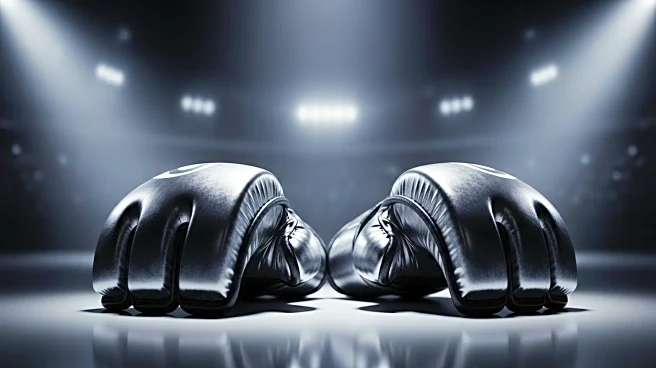What's Happening?
UFC light heavyweight Bogdan Guskov has expressed concerns over what he perceives as a bias against Magomed Ankalaev in the United States. In an exclusive interview, Guskov discussed Ankalaev's lack of popularity in the U.S. despite his impressive fight record. This comes after Ankalaev's recent defeat to Alex Pereira at UFC 320, where Pereira won by first-round technical knockout to become the UFC light heavyweight champion. Guskov noted that both Ankalaev and Pereira have similar challenges with media presence, particularly due to language barriers, yet Pereira enjoys greater popularity. Ankalaev's record includes 20 wins, two losses, and one draw, while Pereira holds 13 wins and three losses.
Why It's Important?
The perceived bias against Ankalaev highlights broader issues within the UFC regarding fighter promotion and popularity, which can significantly impact a fighter's career and marketability. Fighters who are not as popular may struggle to secure lucrative fights and sponsorships, affecting their earnings and career trajectory. This situation underscores the importance of media presence and marketability in the sports industry, where language and cultural barriers can influence a fighter's success. The discussion also raises questions about fairness and representation in sports, particularly for international athletes competing in the U.S.
What's Next?
The UFC and its stakeholders may need to address these concerns to ensure fair treatment and opportunities for all fighters, regardless of their nationality or language proficiency. This could involve implementing strategies to enhance the visibility and marketability of international fighters like Ankalaev. Additionally, Ankalaev may need to consider ways to improve his media presence to increase his popularity and secure more high-profile fights in the future.
Beyond the Headlines
The situation with Ankalaev may prompt discussions about the role of media and public perception in sports, particularly in how athletes are marketed and perceived by audiences. It also highlights the potential for cultural and linguistic diversity to enrich the sports industry, provided that organizations like the UFC take steps to support and promote diverse talent.











